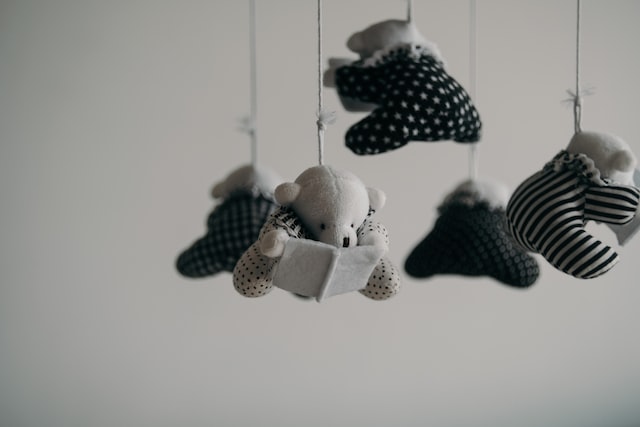Even if you’ve read countless books on the subject, no one is truly prepared for parenthood until the moment arrives. Most first-time parents have a lot of questions about how to handle the responsibility of this new addition to their lives. If you need a little help along the way, this guide is chock-full of tips, information, and advice that may make the process of parenting a bit easier. With the right help and by making a few changes to your lifestyle, you’ll enjoy a smooth parenting journey and a joyous experience.
The goal of this guide is to help ease the stress for first-time moms and dads and help them make the proper adjustments for a smooth transition. You’ll find lots of actionable, easy-to-follow tips and advice. Read on to learn more about how to prepare for your brand-new baby and love every minute of being a new parent.
How to take care of yourself during your first pregnancy
If you’re new to being a mother, it’s important to know how to care for yourself while waiting for your baby to be born. Caring for your physical and mental health while pregnant is essential to ensure a happy, healthy pregnancy and birth. Make sure you eat a well-balanced, nutritious diet and get plenty of sleep every night. You may need to adjust how much physical activity you do during this time, but mild to moderate exercise is still recommended to help keep you strong. Your needs will change during each trimester as the baby develops.
What to do during your first trimester
Here are some tips to feel your best during your first trimester of pregnancy:
- Educate yourself about parenting and childbirth as much as possible. Read books, visit online forums for advice, and talk to your doctor about any questions you have about pregnancy.
- Follow your doctor’s recommendations, including advice about taking prenatal vitamins, what types of food you should eat, and if you need particular care during this time.
- Try to get as much sleep as you can. Try to go to bed at a decent hour every night and awake at the same time every morning to develop good sleep hygiene habits early.
- Learn about the symptoms and treatment for postpartum depression to ensure that you remain in good mental health after the baby is born.
- Drink plenty of fluids, making sure that you’re mainly consuming water. If possible, refrain from drinking caffeinated beverages or energy drinks.
What to do during your second trimester
The second trimester (months four to six) is the time to get ready for your baby to arrive, so keep these tips in mind:
- Get routine lab tests from your doctor to check for any abnormalities that may mean a higher chance of having a baby with birth defects.
- Have your doctor measure your belly and weigh you every visit to confirm the baby is developing normally and on schedule.
- Consider seeking regular prenatal care from a healthcare provider that specializes in pregnancy, such as an OBGYN doctor.
- Remember to have some fun as you get excited for your newborn baby to arrive. Plan date-nights with your significant other. Enjoy each other’s company and strengthen your connection before the baby arrives.
- Set up your nursery and decorate it or buy new furniture for when the little one comes home.
- Now is the time to plan for any major upgrades or renovations, so everything will be complete once your baby is here.
What to do during your third trimester
The third trimester is the last stretch before the baby arrives, so remember to follow these tips:
- Do your best to get as much rest and relaxation as possible so you’re not straining your back and body.
- Continue to meet with your doctor for monitoring and discuss any changes you notice or concerns you may have before the big day.
- At this time, it’s also recommended to take a birthing class. Which will teach you about what to expect during labor and delivery. You may also learn what to expect in the hours, days, and weeks after delivery.
- Get a “go bag” together for the hospital now, so you’ll have everything you need ready when it’s time. Your hospital bag should include a fresh change of clothing and whatever else you need to be as comfortable as possible during your stay. A more detailed list is mentioned below.
- The third trimester is a great time to have a baby shower or a gender reveal party if you choose. It’s also the time to really enjoy these last few months of pregnancy as you prepare your home for the new arrival.
Setting up a baby shower registry can be an exciting and practical way to help friends and family celebrate your upcoming arrival and provide you with essential items for your baby. Here’s a step-by-step guide on how to set up your baby shower registry:
- Choose a registry platform: Decide which online or in-store retailer you want to use for your registry. Popular options include Amazon, Target, BuyBuy Baby, and Walmart. Consider factors like convenience, product selection, and ease of use when making your decision.
- Create an account: Visit the website of your chosen registry platform and create an account. Provide the necessary information, including your name, contact details, and due date.
- Select items: Start browsing the retailer’s baby section and select the items you need or desire for your baby. It’s a good idea to create a list of essential items beforehand to ensure you cover all the basics. Include a variety of products at different price points to cater to different budgets.
- Prioritize essential items: Make sure to include essential items such as diapers, baby clothes, bedding, feeding supplies (bottles, bibs, etc.), a stroller, a car seat, a crib or bassinet, and a changing table. You can also add additional items like toys, books, and nursery decor.
- Consider your lifestyle and preferences: Think about your lifestyle and personal preferences when selecting items. For example, if you plan to travel frequently, you may want to add a portable crib or a baby carrier to your registry.
- Include a variety of price ranges: Add items at various price points to accommodate different budgets. This gives guests the option to choose gifts that fit their comfort level.
- Include gift cards or cash fund: Some registry platforms allow you to include gift cards or cash funds, which can be useful for bigger purchases or items not available through the retailer. Guests can contribute to these funds instead of buying specific items.
- Share your registry details: Once you’ve completed your registry, share the details with your family and friends. You can do this by sending out baby shower invitations with the registry information included, sharing the link via email or social media, or directly informing close relatives and friends.
- Update and manage your registry: Regularly review and update your registry as needed. Some items may be purchased or become unavailable, so it’s important to keep your registry up to date.
- Express gratitude: After the baby shower or as gifts start to arrive, make sure to express your gratitude by sending thank-you notes to your guests. Personalized notes show your appreciation for their thoughtful gifts.
Remember, the purpose of a baby shower registry is to make things easier for both you and your guests. By setting up a registry, you can ensure that you receive items you genuinely need and reduce the chances of duplicate gifts.
What to bring to the hospital
First-time parents, here are some items to include in your hospital go bag:
- A written birth plan you can give to other people, including your doctor
- A fresh change of comfy clothing and undergarments (don’t forget the socks)
- A comfortable robe, nightgowns or pajamas, and a pair of slippers
- Your cellphone and charger
- A cord blood kit if you are planning to donate – be sure to read all paperwork before doing so
- Toiletries like body wash, shampoo, deodorant, sanitary napkins, and facial care items
- An assortment of healthy snacks
- A comfy nursing pillow and massage oil if you prefer to get a massage during labor
- A good book, some music, or magazines

How first-time parents can prepare their home for the baby’s arrival
Before your baby is born, it’s important to get your home ready for their arrival. You should already have everything clean and ready for the baby’s first day home. This includes preparing and setting up the nursery and your own bedroom. While there is plenty of great advice from mom and dad bloggers that you’ve probably begun reading, here are some key things you should prepare for.
Setting up your bedroom
It’s vital to ensure that your bedroom is a safe, comfortable space for your baby. You can do a few home projects in advance to make this room baby-ready. Consider babyproofing by adding baby bumpers to furniture, and don’t forget to include electrical outlet covers. Consider designating a corner of your bedroom for a rocking chair or a comfy chair with a floor lamp so you can sing and rock your baby to sleep. If you want the baby to temporarily sleep in your bedroom, clear some space for the crib so they’re close by.
Setting up your nursery
If you have a spare bedroom, you can remodel the existing space to become the baby’s nursery. Make sure you have ample room and space for everything you need to feel safe and bond with your new little one. Refinish the floors or add carpeting to make the floors soft and cushiony. You can upgrade this room DIY by painting the walls a soft pastel color, installing some wall shelves, and adding new baby furniture.
If you want extra peace of mind, consider getting a home warranty plan that covers major systems and appliances in your home, including those in the nursery. With a home warranty plan, you can have protection against unexpected breakdowns and repairs, which can be especially helpful during this busy and exciting time in your life.
How to handle a newborn
First-time parents handling a newborn baby for the first time can be a bit scary, especially for young parents. With a little bit of time and practice, you’ll eventually get the hang of it. Of course, all new parents should follow a few important tips to ensure that their brand-new baby is safe and happy. Soon, these simple things will become habits and part of your daily life.
Hygiene
Wash your hands with gentle, unscented antibacterial soap before you handle your baby. You should also wear clean clothing when handling your baby. Both are especially important since a newborn’s immune system is not yet fully developed. Keeping clean and practicing good hygiene can help prevent the spread of germs and bacteria.
Protecting your baby from germs
It’s impossible to protect babies from all germs, but there are some things you can do to be proactive. First, keep visitors to a minimum until your baby has been vaccinated or until they’re at least one to two months old. Don’t feed your baby any leftover formula, milk, or baby food to prevent the spread of bacteria.
Bathing your baby safely
Generally, you should give your newborn a bath at least 24 hours after they’re born. Make sure you have the proper tools, including gentle tear-free soap or shampoo, a clean sponge, and a soft towel. You can gently wash your baby with handfuls of warm water until they begin moving more. As your child gets older, begin bathing them in the sink or a specially designed baby insert you can add to the tub. Never leave a baby unattended while bathing them.
Safety
As first-time parents, the safety of your newborn baby should always be the number one priority. This includes when you’re transporting your new baby from the hospital to your home. Remember these simple tips to keep your new arrival safe while driving and when they’re around friends, family, pets, and visitors.
Taking the baby home
Always use a car seat designated for newborns, and ensure they are properly secured in the seat. Newborns and infants should be in the back seat and placed in the rear-facing position. Remember to drive carefully, paying close attention to all traffic signs and the speed limit to avoid an accident.
Transportation
To alleviate stress, install the correct car seat in your car before your new baby arrives. This will ensure you have what you need when the day comes and that your little one will be safe whenever you go anywhere. Choose a car seat that has been tested by experts to ensure maximum safety.
Introducing your baby to your family and friends
There’s little doubt that your friends and family members will be excited to visit your newborn. However, as a new parent, there are some things you can do to protect your little one and keep them healthy before having visitors over.
Visitors
Don’t let people visit if they feel unwell, as they could pass potentially dangerous germs on to your baby. Make sure all visitors are up to date on their vaccines. Have guests wash and dry their hands thoroughly before they touch the baby just to be extra cautious.
Pets
Exposing pets to a new baby can cause confusion and worry. Give your dog and/or cat plenty of attention while the baby is around to prevent jealousy. Slowly introduce the baby to your pets by letting them sniff the newborn, and never leave your baby in the room with pets unattended.

Getting help after the birth
As a first-time parent (or any-time parent), having a good support system after the baby is born is vital. Caring for a newborn baby can feel overwhelming, so having people you trust to help out can be essential to your mental well-being. Turn to the people you love and build a strong network to have access to help whenever you need it.
Get your family involved
It’s always wonderful to have family around to help out when you have a new baby. If your parents aren’t available, ask a sibling, aunt, uncle, or cousin if they can help you out when you need it. Family can be your strongest network, and most will be more than happy to babysit or help you in any way they can. Not only can family members help with babysitting, but they can also be wonderful companions during this time. Older family members may also be able to offer young parents advice about parenting and serve as a listening ear whenever you need a shoulder to lean on.
Build your support system
Family members aren’t the only people who can become a part of your support system. Having a few trusted friends is another great way to get some assistance and emotional support. Even small chores like running errands or helping around the house can do wonders for taking the stress and burden off a new parent’s shoulders. Having people you know, love, and trust around you during this time can make a huge difference in many ways. It may also give you time to take a much-needed nap or practice a little self-care.
Additional resources for new parents
It helps to have support from people going through the same thing as you. Look for some first-time parents or new parenting groups online or in-person, so you have a network of people around you who are dealing with the same issues. Groups for new parents can be a great resource for helping each other out, setting up playdates as your babies get older, and just getting some much-needed advice. These groups can also come up with ways to help different parents at different times so everyone benefits from the assistance of each other.
Baby basics
First-time parents should know some baby basics to ensure their little one is healthy and developing properly. From major milestones to feeding babies and figuring out reasons for their crying, check out these tips below to help you understand the key things to look out for as a first-time parent.
Baby milestones
All babies develop at their own pace, but here are some major milestones most babies reach during their first year of life:
- The first month – Baby brings their hands to their face, focuses on objects eight to 12 inches away, and recognizes sounds and voices.
- After three months – Baby can raise their head and chest while on their stomach, stretch their legs out and kick, open and shut their hands, and begin to recognize familiar faces.
- Seven months to a year – Baby sits up, reaches for objects with their hand, starts crawling, and begins saying simple words like “dada” and “mama.”
Capturing memories
When capturing your baby’s first photos, here are a few helpful tips to ensure memorable and adorable shots. First, choose a well-lit environment with natural light, preferably near a window. Soft, diffused lighting enhances your baby’s features and avoids harsh shadows. Second, get down to your baby’s eye level to create a more intimate perspective. This helps to showcase their innocent expressions and create a personal connection. Lastly, be patient and keep your camera or phone ready to capture spontaneous moments. Babies are full of surprises, and those candid shots often turn out to be the most heartwarming and cherished memories.
Crying
Since your newborn can’t talk yet, crying is their only form of communication. Most babies cry as a sign of distress or to alert another human that they need attention. Eventually, your little one will replace their crying with talking, but in the meantime, it’s important to know why they’re crying and what you can do to help.
Reasons babies cry
Babies cry for different reasons, including:
- Hunger: If your baby is crying because they’re hungry, a quick feeding will do the trick.
- Pain or discomfort: Your baby could be gassy or have a dirty diaper. Make sure the baby is burped to relieve gas, and check/change dirty diapers ASAP.
- Stimulation: Too much light or noise could cause overstimulation. Provide your baby with a comfortable, quiet place to nap and sleep.
When to seek professional help
In some cases, a crying baby may need medical attention. If your baby has a fever, persistent diarrhea, vomiting, a rash, or breathing difficulties, seek medical attention as soon as possible. Most babies will stop crying after the issue is addressed unless there’s an underlying illness that should be diagnosed and treated.

Feeding
Your newborn needs to be fed multiple times a day. As they get older, their feeding times will become less frequent. Newborns need approximately ½ ounces in their first days, then about one to three ounces per day during the first two weeks of life. Refer to this chart for a detailed schedule.
Breastfeeding
If you’re able to feed your baby via breastfeeding, this will provide a wide range of benefits for both mom and baby. Breastfeeding reduces your baby’s risk of a variety of diseases, including asthma and diabetes. Some studies show that breastfeeding moms have a lower risk of some types of cancer and Type 2 diabetes.
Formula
A well-balanced baby formula is a healthy alternative to breastfeeding. It’s convenient and provides your baby with a wide range of nutrients. Formula feeding may also help protect your baby against certain infections, and it’s an easy way for others to help feed your newborn.
Weaning
According to the American Academy of Pediatrics, babies may start weaning around six months old, but it’s best to feed breastmilk or formula in combination with solid foods for at least a year. Weaning introduces your child to other forms of nourishment and brings new nutrients to their diet as they grow.
Sleeping
Sleep is essential for a healthy lifestyle, so both mom and baby should get plenty of it. You’ll be mentally and physically healthier when you and your newborn get adequate sleep. Without proper sleep, your baby will be fussy and hungry and won’t develop a good circadian rhythm.
Soothing your baby
Soothe your baby to help them fall asleep faster and give them a sense of safety and comfort. Gently cradle your baby in your arms and rock them to help calm them for sleep. If they keep waking up, try singing a song quietly or gently pat them on the back until they drift back to sleep.
Baby monitors
Once your baby can sleep in their nursery alone, a baby monitor helps you keep track of how they’re doing. These handy accessories will ease your stress while allowing you to perform daily household tasks or even take your own nap. New parents should consider a monitor to help them watch their little ones from afar.
Diapers
Diapers can be disposable or machine-washable cloth. Make sure you choose diapers appropriate for your baby’s age and weight for a snug, leak-free fit. Change them often to keep them clean and prevent diaper rash.
Different types for different stages
Newborn diapers are for babies under 10 pounds. As your baby grows, you’ll need to size up. Size 1 diapers fit eight to 14-pound babies, Size 2 fits 12-18 pounds, Size 3 fits babies weighing 16-28 pounds, and so on. Once your child reaches the toddler stage, they can start to wear overnight diapers or disposable underwear. Consider reusable, washable diapers to save money and the environment.
Clothing
While baby clothes are cute, you don’t want to buy too much during their first few months, as babies grow quickly. Size up every time you buy something new so that it lasts longer, or ask friends for donated clothing. Ensure you always wash your baby’s clothes with a gentle detergent made for their delicate skin.
Babyproofing
For first-time parents, Babyproofing is important to keep your little one safe. Here are some quick tips to help you avoid accidents:
- Keep your bathrooms locked at all times to prevent entry.
- Use outlet covers and baby-proof locks on kitchen cabinets.
- Make sure your water heater is set to the proper setting to avoid scalding.
- Put bumpers on furniture corners to prevent injury.
- Lower the crib as soon as your baby can pull themselves up.
- Move heavy objects off shelves and counters to the floor or out of sight.
- Replace corded window blinds with the cordless version.

Being a first-time parent is a truly exciting part of life, but it also comes with many challenges. Remember these tips about your baby’s nutrition, sleep, and other needs, as well as postpartum essentials, to keep you and your baby healthy, happy, and safe. Every milestone is a time to cherish. There’s no doubt that parenting is one of the most difficult jobs out there. No one trains you for it, but the rewards are worth the work. It’s vital to enjoy those special moments in life now because your little one will be heading off to daycare and then to school before you know it.
Whether you are a first-time parent who recently purchased a home or is considering the idea. There are systems you will need to ensure are in tip-top shape to keep your baby comfortable and safe. For example, HVAC to keep you warm during the chilly winters and cool you down during the warm summers. A great way to alleviate the stress of hiring a professional to make any necessary repairs is by acquiring a Home Warranty plan. By saving money on repairs, you can invest in more baby essentials.




